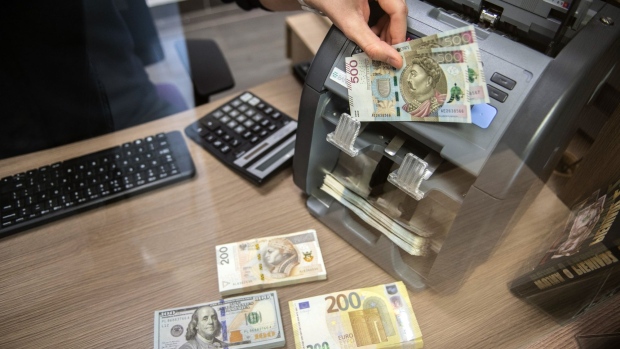Sep 23, 2021
Polish Central Banker Kightley Says Zloty Decline Helps Economy
, Bloomberg News

(Bloomberg) --
The zloty’s recent depreciation is helping Poland’s economy, according to central bank deputy Governor Marta Kightley, with the weaker currency serving as a shock absorber for global turmoil.
The zloty has been “reasonably stable” except for the episodes when the economy is hit by external shocks such as the outbreak of the pandemic or the global debt crisis, Kightley said at an online panel with her counterparts from the Czech Republic, Hungary, Croatia and Slovakia.
“We have a bit of depreciation now, which is helping at the moment,” she said in remarks in a recording posted on Thursday. “I’m not saying we shouldn’t be doing any structural reforms or anything like that, but to us, we see it as an advantage when the external shock comes.”
The endorsement of currency weakness from a Polish central bank official coincides with the zloty’s drop this week to its lowest level versus the euro since April. Policy makers’ insistence on keeping interest rates near zero despite inflation at a two-decade high has weighed on the zloty at a time when the nearby Czech Republic and Hungary are tightening monetary policy.
Kightley doesn’t sit on the central bank’s monetary policy council, which sets interest rates. However, as a member of its management, she has influence over decisions about the bank’s foreign currency interventions and its quantitative easing program.
Kightley said joining the euro “would pose problems” for Poland in the face of the European Central Bank’s ultra-loose monetary policy. “Our inflation tends to be higher than the euro zone’s, so we do in the long-term need higher interest rates,” she said.
©2021 Bloomberg L.P.